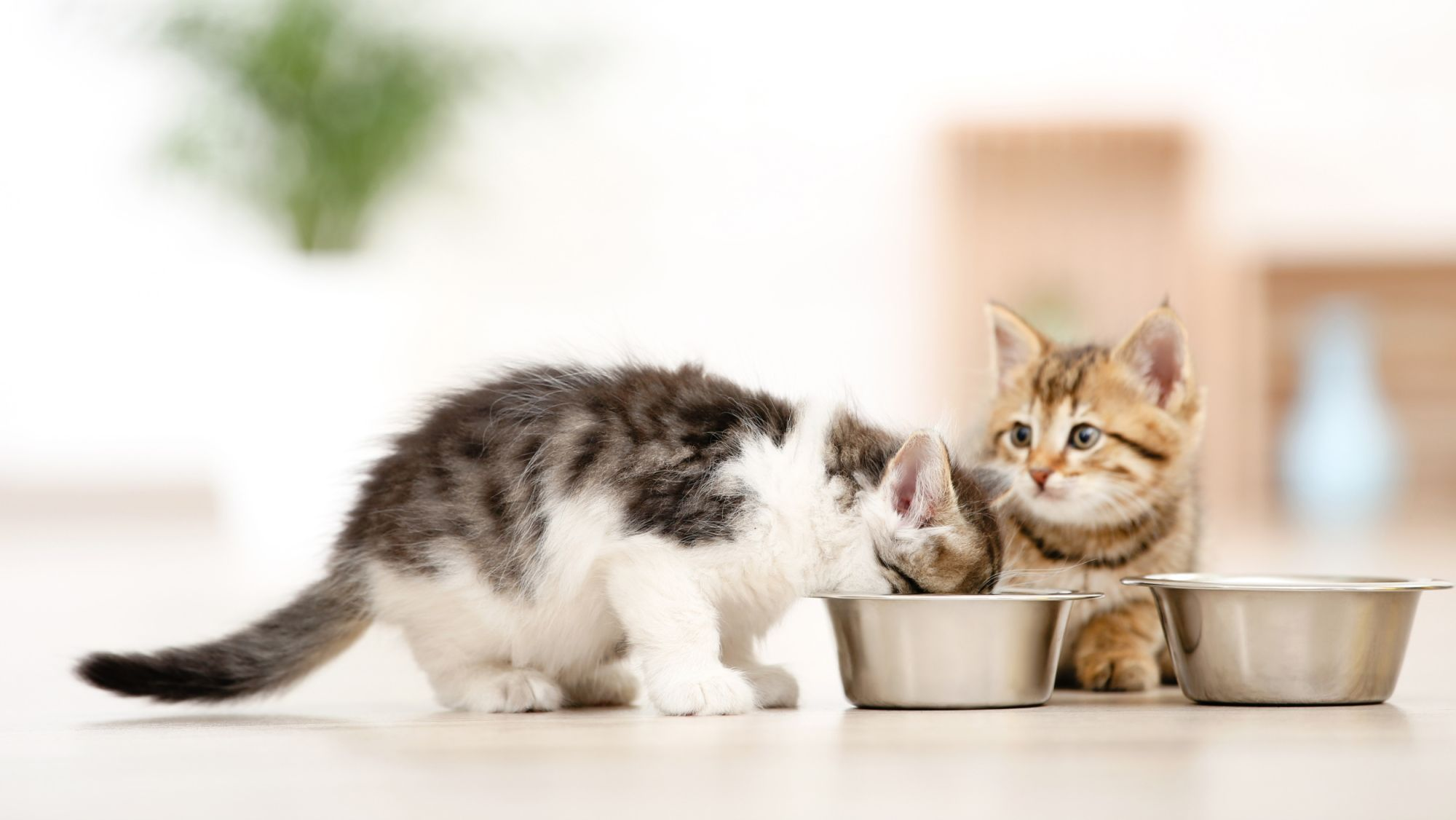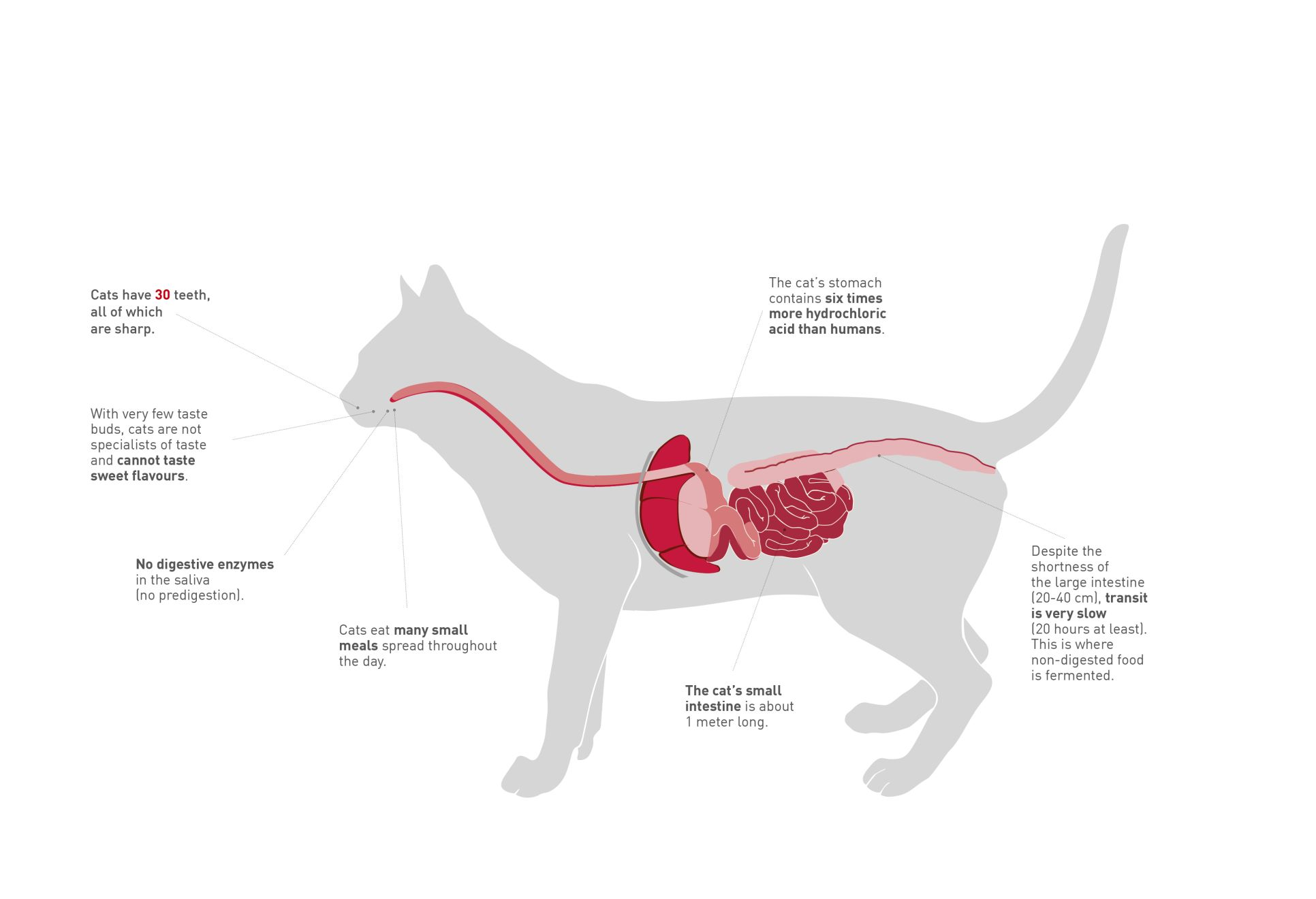Article

After your cat has swallowed their food, it passes through their oesophagus into their stomach. Digestive enzymes are released which start to break down the food as it then passes into the small intestine. It takes your cat’s food around 12-24 hours to travel through their entire digestive system which accounts for around 3% of their total body weight. The large surface area of the small intestine helps absorb the nutrients into the body once they have broken down into small pieces. The large intestine is the last step in the digestive process, as it transports waste back out of the cat’s body.

It’s scientifically based and for the process to work efficiently, the food needs to be highly digestible so cats can utilise the vital nutrients they need for their optimal growth. A healthy digestive system is also important to avoid any undigested food fermenting or putrefying in the large intestine, disturbing cats’ delicate microflora (also called healthy bacteria) and causing digestive issues such as diarrhoea and nutritional deficiencies which can later develop into longer-term health problems.
Why is digestion different and delicate for kitten?
Kittens are born with very fragile digestive systems. At birth, they can only digest milk from their mother. Over time, they will lose the ability to process the lactose in milk which is the reason why most adult cats simply can’t digest milk and get sick from it. The queen’s unique milk composition is exclusively designed for kittens and perfectly adjusted to their fragile little bodies – that’s also why cow’s milk is not good for kittens, and worst it could cause loose stools and more serious digestive issues as well as nutritional deficiencies. And when kittens can’t be fed by their mum, replacement milk with a formula very close to that of a queen’s milk exist.
As your kitten grows, their digestive system is better able to handle more complex foods such as starch. But this process happens gradually, so it’s important to always feed them food appropriate for their age. And to make it easier, we’ve labelled our pack with this information, so always follow the recommendations and when in doubt, ask your vet.
How can nutrition help support a kitten’s digestive system and general health?
For your kitten (and their digestive system) to grow healthy, it’s crucial to feed them quality food rich in targeted nutrients. Selected fibres combined with highly digestible proteins is important for kittens of all ages. Today, your kitten is one little ball of energy (as you probably already know) and until they are around 3 months old, they need 2-2.5 times more energy per kilogram of body weight than an adult cat! Good news, the recommended portions are also written on our pack – too easy!
How do cats digest food?
Cats are like gourmets, and it starts when they’re kittens. It’s no wonder because their tastebuds are fully operational early on in life so they can taste everything from a very young age. But food is not only a matter of taste, it’s also a crucial element for health in general as it provides vital nutrients needed for the body to function properly.
Dale like y compartí esta página